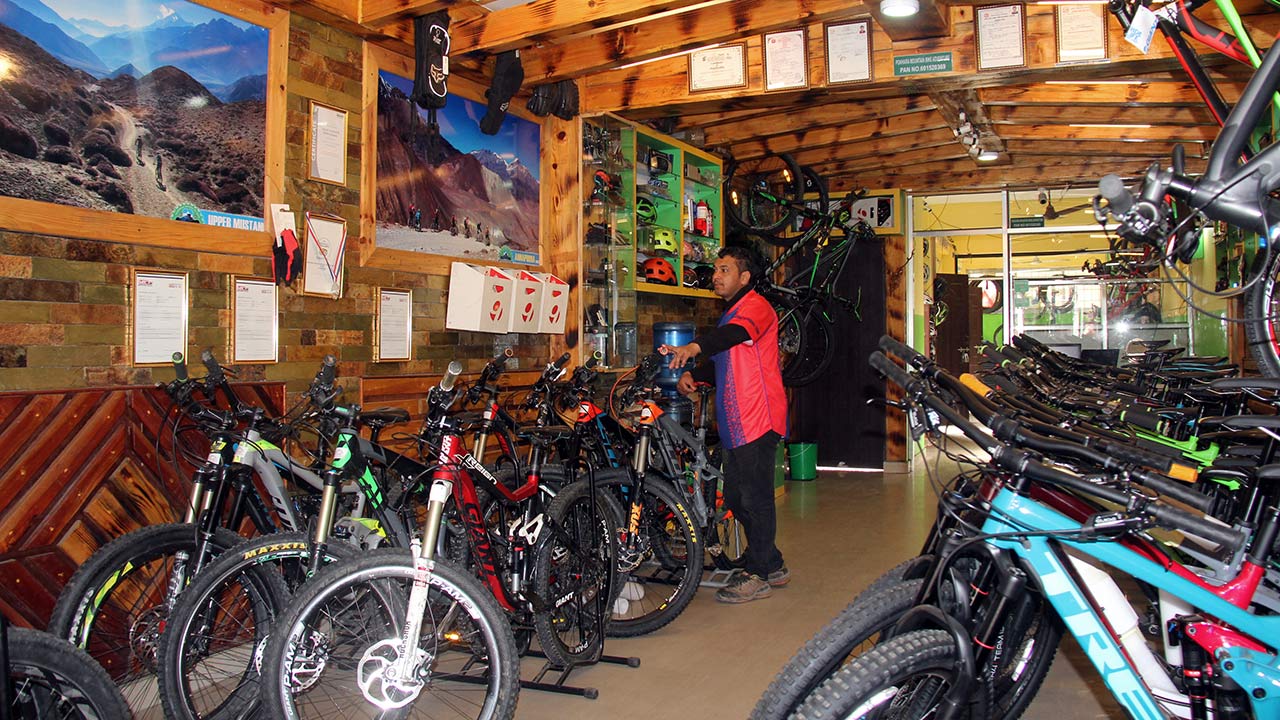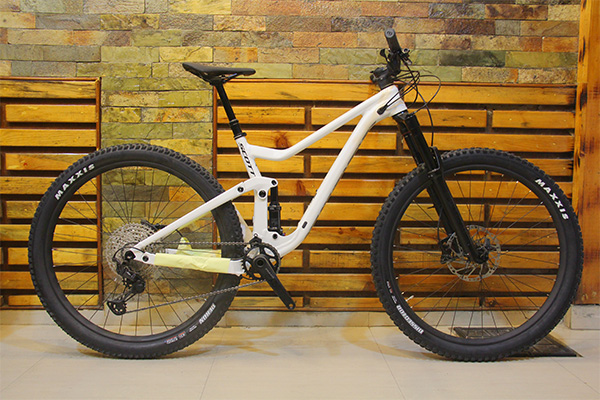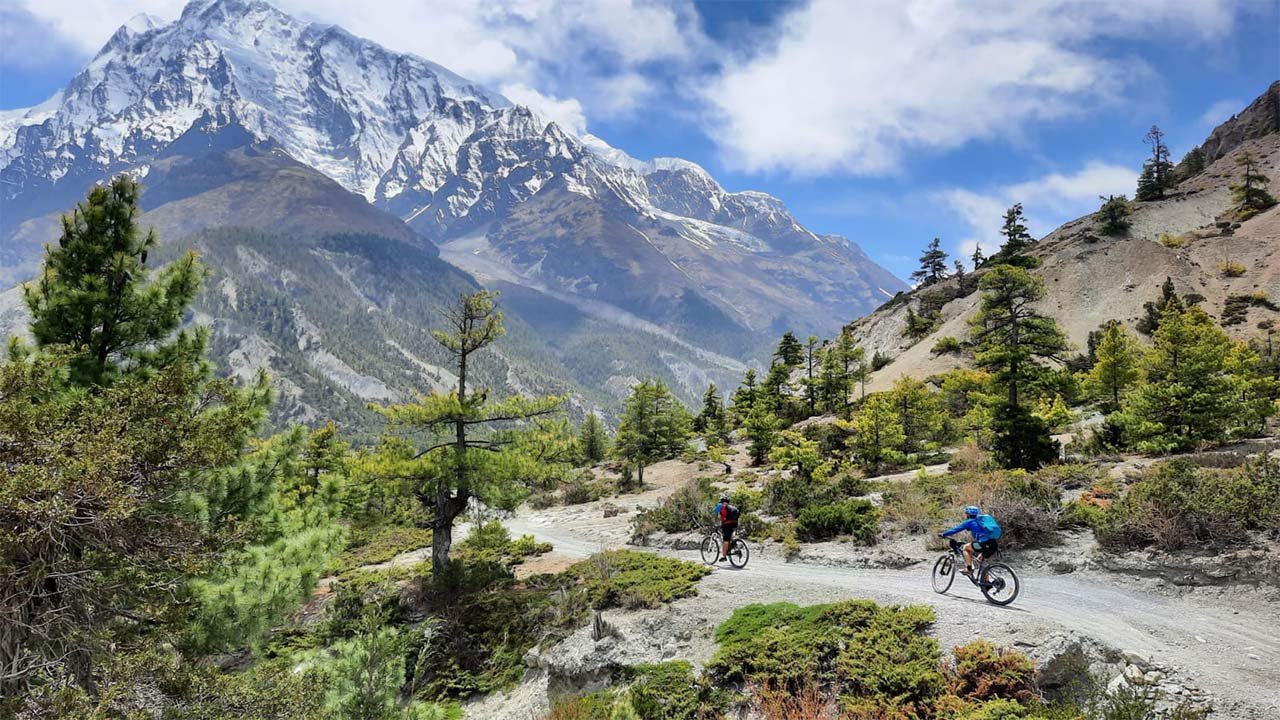Blog / Cycle Rental: A Sustainable and Pocket-Friendly Transportation Solution
Cycle Rental: A Sustainable and Pocket-Friendly Transportation Solution
Benefits, Challenges, and Stories of Success from Bicycle Rental Systems in Urban Transportation
PMTBA
Published on:
17 Aug 2024

1. Introduction
In this chapter, it will be argued that small, one-person or sitting-tandem two-wheeled vehicles (bicycles) have a major role to play in the sustainable planning and operation of urban transportation systems. The bicycle's symbiotic relationship with the extensively debated new generation of electric cars and motor scooters will also be emphasized. Unlike these vehicles, the bicycle has been largely overlooked by all concerned parties. In some instances, this has been a deliberate act of discrimination; in others, it has been an act of omission; in still others, it has simply been an oversight.
In any case, all countries, both developed and developing, ignore the potential of the bicycle at their peril, for this form of transportation is the only self-powered mode, the only mode which, providing a street pattern is suitable, has no difficulty at all in traveling at traffic-stream speeds during periods of medium urban traffic density. It has no difficulty in commuting to work. In true rennin communities, it is the only mode permitted, the only mode where the sum total of the resulting land-value gradient provides enough revenue per urban acre for each "peck of earth" to provide a decent living. Furthermore, bicycles have no moving-part warranties to expire, for they have no moving parts. Their floor space requirements are so little that all security measures are inordinately expensive. Their total vulnerability is a great blessing in disguise. Equally important, the non-use of bicycles in some environments is a grave threat to the future of many cultures, for the implications of widespread inactivity on infant behavior and the subsequent "supersizing" of the mature adult are not pleasant.
1.1. Background and Rationale
Urban areas have developed largely around the automobile, with significant land use impacts including lack of green and recreational spaces, as well as an incentive for low-density land use patterns. Over 40% of trips are less than 2 km long, yet the vast majority are taken using an automobile or public transit. Such short trips are ideal for alternate transportation, cycling being one of the main options. Cycling also brings benefits that promote more sustainable urban development patterns. It is usually recognized that cycling has potential direct benefits of increasing physical activity while reducing traffic congestion, urban heat, air pollution, fossil fuel consumption, noise pollution, and CO2 emissions.
Public transport has maximized benefits when it is organized on high density corridors defined by spatial planning and detached land use patterns. Cycling integrates well with public transport, providing efficient solutions particularly when one end of the trip is a neighborhood destination with a lower transit use potential. The attractiveness of cycling increases with the role transit plays in the trip. With sustainable urban development being largely dependent on increasing the share of public transportation in urban mobility and ensuring adequate land use patterns around the public transportation hubs, integrating both modes efficiently is crucial. Providing cycle rental facilities at public transit hubs and publicly or commercially maintained and operated systems, where the flexural trips can easily and affordably be completed, provide such an integration.
2. Benefits of Cycle Rental
Introduction to Cycle Rental Services
In recent years, as a result of increasing awareness of environmental factors, bicycle use has gained momentum. In addition to transformation and renovation works carried out under local administrations, many bicycle rental services have been established, depending on increasing sensitivity. As a value that brings benefits to the people and the environment, as well as transportation costs, new implementations are being made every day on the subject. Bicycle service is one of them. The goal of encouraging cycling as an alternative mode will only be realized if the government initiates and maintains the provision of high-quality cycling facilities and services.
In this respect, in order to increase the attractiveness of cycling, cycling services must be characterized, mobility policy priorities must be defined, and strategies must be drawn within the framework of these priorities. With these calculations, rent-a-bike services are evaluated, and the sectoral differences are discussed in the reviewed rental service. Cycling gains a great advantage over automotive modes of transportation. Particularly due to the unique advantages it gains from the quick adaptation and the flexibility of the public transit system, the pressures on private car use in urban areas have led to different applications. At that point, the rent-a-bike service has come out as a quite convenient alternative.
2.1 Environmental and Health Benefits of Cycling
When compared with the great majority of motorized modes of travel, cycling is a more environmentally-friendly mode of transport. This chapter lists the many benefits of cycling as a climate-friendly mode of transport at a time when developed countries, in particular, are striving to reduce their carbon emissions. It lists, in particular, the negative externalities that are imposed by the majority of motorized mobility modes. It also lists the broader benefits of active travel – the health and well-being impacts, which are seen to be an indispensable complement to climate-friendly policies. It then proceeds to list the societal-level benefits of increased cycling and walking rates. Such benefits cover the individual as well as the public level and include direct monetary values.
The majority of previous literature, and particularly policy documents, promote cycling with a view to lowering the negative impacts of transport. Indeed, from a sustainability perspective, reducing the negative externalities of transport is indeed one of the major reasons often supplied for promoting cycling. In particular, policy documents point to the strong and especially positive impacts that increasing the walking and cycling share of all trips can have on climate change, air quality, noise, urban form, and other sustainability areas. These positive impacts have been quantified using numerous approaches.
3. Challenges and Solutions
Nowadays, traffic jams have become increasingly severe in most big cities in modern society, which attracts people's great attention. As a result, planners and engineers are looking for some effective ways for road transportation in order to promote economic growth and protect the human living environment. One popular viewpoint is that cycle provision, cycling facilities, and cycle infrastructure should be developed to make the transport system complete. Not only because it is the cleanest, quietest, and greenest form of transportation in cities, but also because it has the smallest road space and the least environmental and financial costs.
More practically, cycling has evident health benefits, and the majority of urban trips are short distance and ideal for cyclists. This can help in freeing up road space for commercial vehicles, public transportation, and emergency services. Especially for big cities, short trips which are small in type, long in frequency, and high in dependency, accommodating this varied demand remains a major challenge within a city's entire transportation system. The growth in the number of cyclists has a significant contribution and has been cited as an essential element of an environmentally sustainable urban transport strategy.
Also, there are several sub-specific reasons which encourage local governments to pay more attention to cycle transportation. Such as tackling urban traffic congestion, achieving transport and climate targets, mitigating the consequences of the economic downturn, complying with statutory obligations, avoiding potential financial penalties, and so on. Nowadays, large amounts of funds have been invested in cycle infrastructure, roads, traffic lights, and cycle stands. However, the majority of research considers that the most immediate necessity for city cycling and bike-sharing systems is to provide bicycles in good condition. So, people are willing to have their best experience of cycling and make valuable comments on the rental service, all depending on the function of rental bikes.
The cycle rental system is an ideal form of public transportation and has a big advantage over other forms of transportation such as trams, buses, or subways. Moreover, various benefits are generated from cycle rental systems, including fewer vehicles on the road and less pollution, improved air quality, and reduced noise pollution. It also supports efforts to boost the production of green goods, new services, and green jobs.
3.1. Infrastructure and Safety Issues
One of the biggest issues with bike sharing in cities is the state of the roads. Most urban roads are designed for cars, making cycling difficult and dangerous. Narrow roads, lack of dedicated bike lanes and poor parking can discourage people from using bikes for commuting. Additionally, crossing busy roads and intersections is dangerous, especially if bike lanes are not clearly marked or adequately separated from traffic addressing these road-related issues is critical and make bike parks a safer and more enjoyable option for riders.
To address these problems, city designers and local authorities need to consciousness on building a complete network for bicycles. This approach adding extra separate paths for bikes, making steady and smooth-to-reach places to park motorcycles, and slowing down visitors to hold bikers safe. Also, connecting bike rental offerings with the present day public shipping device can make travel smoother and greater convenient. By improving infrastructure and safety, towns could make motorcycle condominium applications greater attractive and support a greener and greater sustainable way of transferring around.
3.2. Bike Parking Facilities
Proper bike parking is an essential element of a successful bike rental system. Secure and conveniently placed bike racks or docking stations are crucial to provide users with a safe place to leave their rental bikes. Well-designed parking facilities not only deter theft and vandalism but also make it easier for users to access their bikes. By integrating bike parking into busy areas and near important public transportation hubs, cycle rental systems become more convenient and attractive to users.
3.3. Bike Lanes and Shared Paths
Dedicated bike lanes and shared paths are essential to the achievement of cycle condominium applications. Bike lanes provide a designated space for cyclists, decreasing the danger of accidents with motor vehicles and making biking a more appealing alternative. Well-designed lanes should be separated from automobile visitors and honestly marked to ensure protection. Shared paths, which accommodate both cyclists and pedestrians, want to be huge sufficient to prevent congestion and conflicts. Investing in those infrastructure factors is critical for growing a more secure and extra inviting environment for bike condo users.
Enhancing complete bike lanes, shared paths, and parking facilities is essential for supporting cycle rental applications and ensuring their achievement. By specializing in those infrastructure improvements, towns can improve safety, convenience, and typical performance in their cycle condominium systems, in the end main to greater sustainable urban transportation solutions.
4. Case studies: Successful implementation of cycle lease programs
To higher apprehend the potential of cycle lease, it's far precious to observe case studies of cities and areas that have successfully carried out such packages. One brilliant example is the metropolis of Copenhagen, Denmark, which has lengthy been a frontrunner in sustainable transportation and has embraced cycle hire as a key element of its mobility method.
Copenhagen's cycle rent software, known as Bycyklen, has been in operation considering 2013 and has seeing that grown to encompass over 2,000 cycles across the town. The application's achievement can be attributed to its big network of cycle lanes, its integration with the city's public transportation gadget, and its consumer-friendly technology that allows for seamless rentals and returns. As a result, cycling has come to be the number one mode of transportation for lots Copenhagen residents, contributing to the city's recognition as one of the maximum livable and sustainable city facilities within the global.
Another successful case study is that of Paris, France, in which the Vélib' cycle hire program has been in operation considering the fact that 2007. The application has improved through the years, with over 20,000 cycles to be had across the metropolis. The Vélib' system has been broadly followed by Parisians and site visitors alike, with the cycles serving as a handy and environmentally friendly way to navigate the city's streets. The program's success has led to the implementation of comparable cycle lease tasks in different French towns, further promoting sustainable mobility throughout the country.
These case research show the capability for cycle rent to convert city transportation and make a contribution to more sustainable, livable, and equitable cities. By mastering from the successes of those programs, different municipalities may be benefitted socially, economically and environmentally from bicycle rent plans.
5. Conclusion: The implementation of bike rental as a sustainable future
In a drive for a greener, healthier future this movement in cycles for rent is a prospective answer to the problem of transport that is challenging for lots of cities. Not only it provides a fast, cheap, and green way of transportation, but it can revolutionize the movement of the cities' population.
First and foremost, cycle rent offers many advantages, improving not only the environment but also the people. As for the individuals, at first, cycle rental brings accessibility, flexibility, and last but not least savings, which draws it more than traditional means of transport. On the other hand, the environment is also a big winner because cycling not only reduces pollution gases but also helps in the improvement of air quality and in the reduction of the traffic jams thus, all the time while changing the way of living.
Furthermore, one cannot ignore the positive effects of biking on health. The habit of physical activity becoming an integral part of cycle rent users' daily life can give their hearts good health. Besides this, these people will be stronger on their muscles and have better wellbeing. Consequently, the result of a healthy and more active population is that the latter will further add to the creation of sustainable and live-able communities.
Looking into the future, the wide and universal implementation of cycle rent will be a main factor in the model of transportation in cities. By supporting cycle rental, local governments and civic communities join hands in making cities more pedestrian-friendly, bike-friendly, and with less stray energy and pollution. The move toward a cleaner mode of transportation can have multiple effects from curtailing our carbon emissions to establishing healthier intellectual and more vibrant community places.
Joining the cycle rent community is not only a smart transportation solution but also a forceful message that we are all committed to the environment. By taking the choice to rent a cycle instead of using conventional transportation, we can all help to make the world greener, more sustainable, and fairer for everyone. Now, it's time to implement the first move to turn our cities into sustainable spaces by investigating the cycle rent method and becoming the main part of urban transportation.
You may also like
View All
Last-Minute Mountain Biking Tours in Nepal: Tips Not to Miss for an Unforgettable Ride
04 Feb 2025
Jagan Biswakarma

Beyond Cycling: Extraordinary Mountain Biking Tours in the Heart of the Himalayas
18 Dec 2024
Jagan Biswakarma

Mountain Bike Rentals in Nepal: Your Guide to the Best MTB Rentals and Tours 2024/2025
17 Oct 2024
Jagan Biswakarma

Guided Bicycle Tours & Cycling Holidays in Nepal with PMTBA – Top Tour Operator
27 Sep 2024
Jagan Biswakarma

Annapurna Circuit mountain bike and Trekking Adventure: Conquer Nepal's Ultimate Trail
18 Jul 2024
NMTB